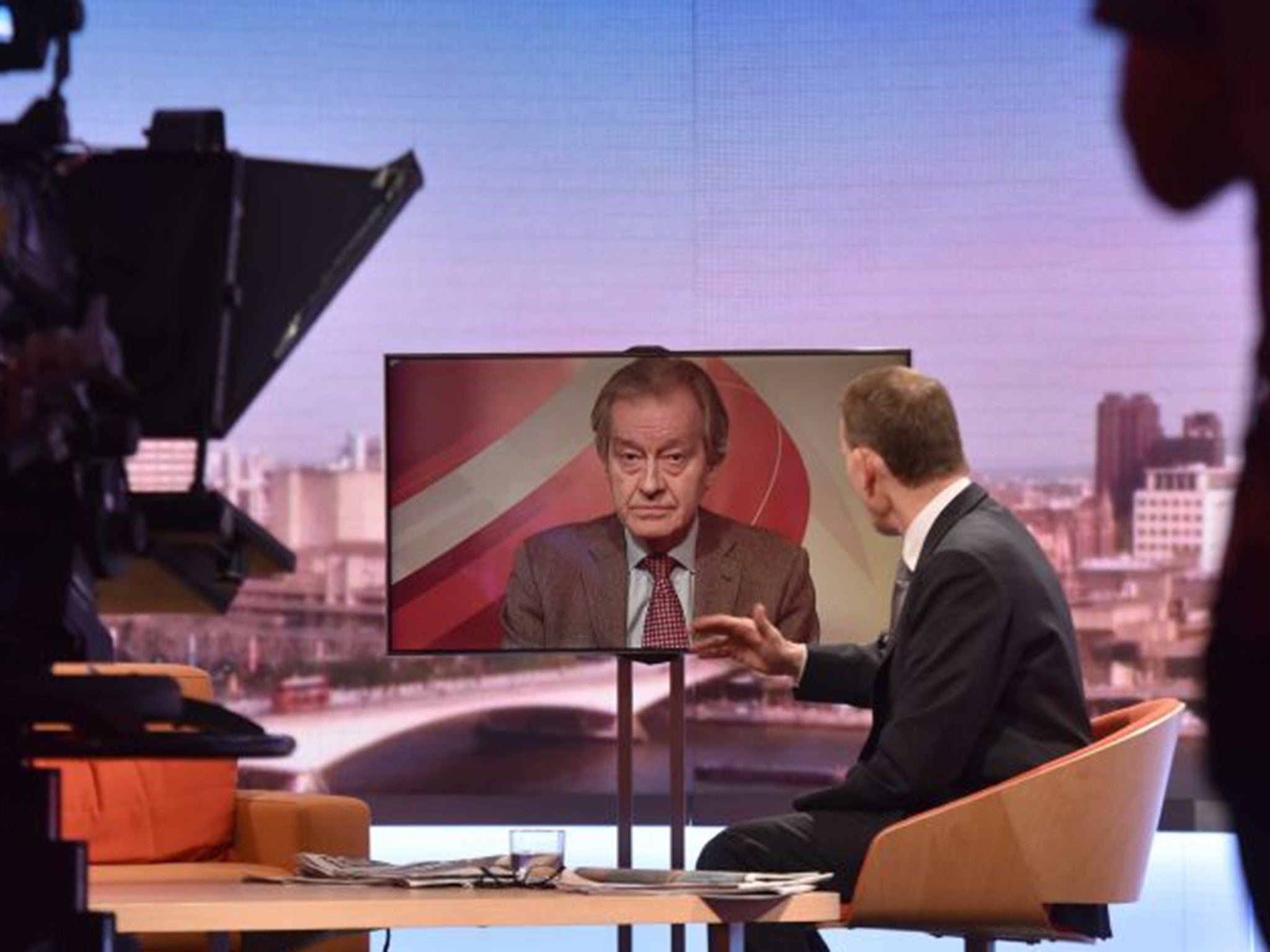Brexit: Theresa May challenged by senior Tories over 'worse than feared' EU withdrawal speech
Ex-cabinet minister Stephen Dorrell branded Brexit as a ‘pointless exercise’

Your support helps us to tell the story
From reproductive rights to climate change to Big Tech, The Independent is on the ground when the story is developing. Whether it's investigating the financials of Elon Musk's pro-Trump PAC or producing our latest documentary, 'The A Word', which shines a light on the American women fighting for reproductive rights, we know how important it is to parse out the facts from the messaging.
At such a critical moment in US history, we need reporters on the ground. Your donation allows us to keep sending journalists to speak to both sides of the story.
The Independent is trusted by Americans across the entire political spectrum. And unlike many other quality news outlets, we choose not to lock Americans out of our reporting and analysis with paywalls. We believe quality journalism should be available to everyone, paid for by those who can afford it.
Your support makes all the difference.Senior Tories have begun pushing back against Theresa May’s EU withdrawal plans, with one ex-cabinet minister saying they are "worse than we feared".
Former Health Secretary Stephen Dorrell made the claim as he garnered support for his campaign group to reverse what he called the "pointless exercise" of Brexit.
Ex-chancellor Ken Clarke and former business minister Anna Soubry both challenged the Prime Minister to allow the House of Commons a greater say in forming her plans.
Ms May set out her approach to talks with the EU more clearly than ever earlier this week, highlighting how her preferred 12-point plan would see the UK leaving the single market and, as it stands, the customs union.
In a message seeking to win new members for his pro-EU Europe Movement, Mr Dorrell wrote: "The Prime Minister finally laid out her plans for Britain's place in the world after we leave the EU – and it's worse than we feared."
In a sardonic tone, the email continues that Ms May’s idea of "Global Britain" entailed leaving "the largest economy in the world. Removing free movement, which supplies 10 per cent of our NHS doctors" and "leaving the customs union, potentially resulting in a land border in Ireland".
It went on: "But there is good news. Parliament will be given a final say on the deal the Government negotiates and given a chance to reject it.
"The European Movement is committed to fighting Brexit and, with your support, will campaign to reverse course and reject this pointless exercise."
In her speech Ms May promised a vote for Parliament on the final terms of the deal she agrees with the EU, but signalled that the country would still leave the bloc if MPs and Peers reject her deal.
But speaking in the Commons afterwards, Mr Clarke demanded a vote on the Brexit approach set out by the Prime Minister before the negotiations were finished.
He said: "In that speech, she confirmed her commitment to parliamentary democracy, and I assume that she therefore accepts the long-standing convention that the Executive – the Government – are continuously accountable to the House for the policies that they are pursuing.
"Will she clarify whether she intends to make any further statements of policy intentions to the House, and whether she expects the House to have an opportunity to vote its approval for those policies earlier than two years from now, when the whole negotiation has been completed?"
Ms May responded that Brexit Secretary David Davis had spent two hours answering questions on the speech in the Commons and there would be further opportunities for debate, including on the planned Great Repeal Bill, to absorb EU law into British statute, and on triggering Article 50, expected by the end of March.
But Ms Soubry asked that the Prime Minister "consider publishing all those 12 objectives in a White Paper", an official parliamentary document, so that the Commons can debate them before Article 50 is triggered.
Failing to specifically commit to the request, Ms May said: "One of the objectives and principles I set was about certainty and clarity. It continues to be the Government’s intention that we will provide clarity whenever it is possible, and we will ensure that, at appropriate times, both the public and Parliament are kept informed and are able properly to consider and scrutinise these issues."
Join our commenting forum
Join thought-provoking conversations, follow other Independent readers and see their replies
Comments